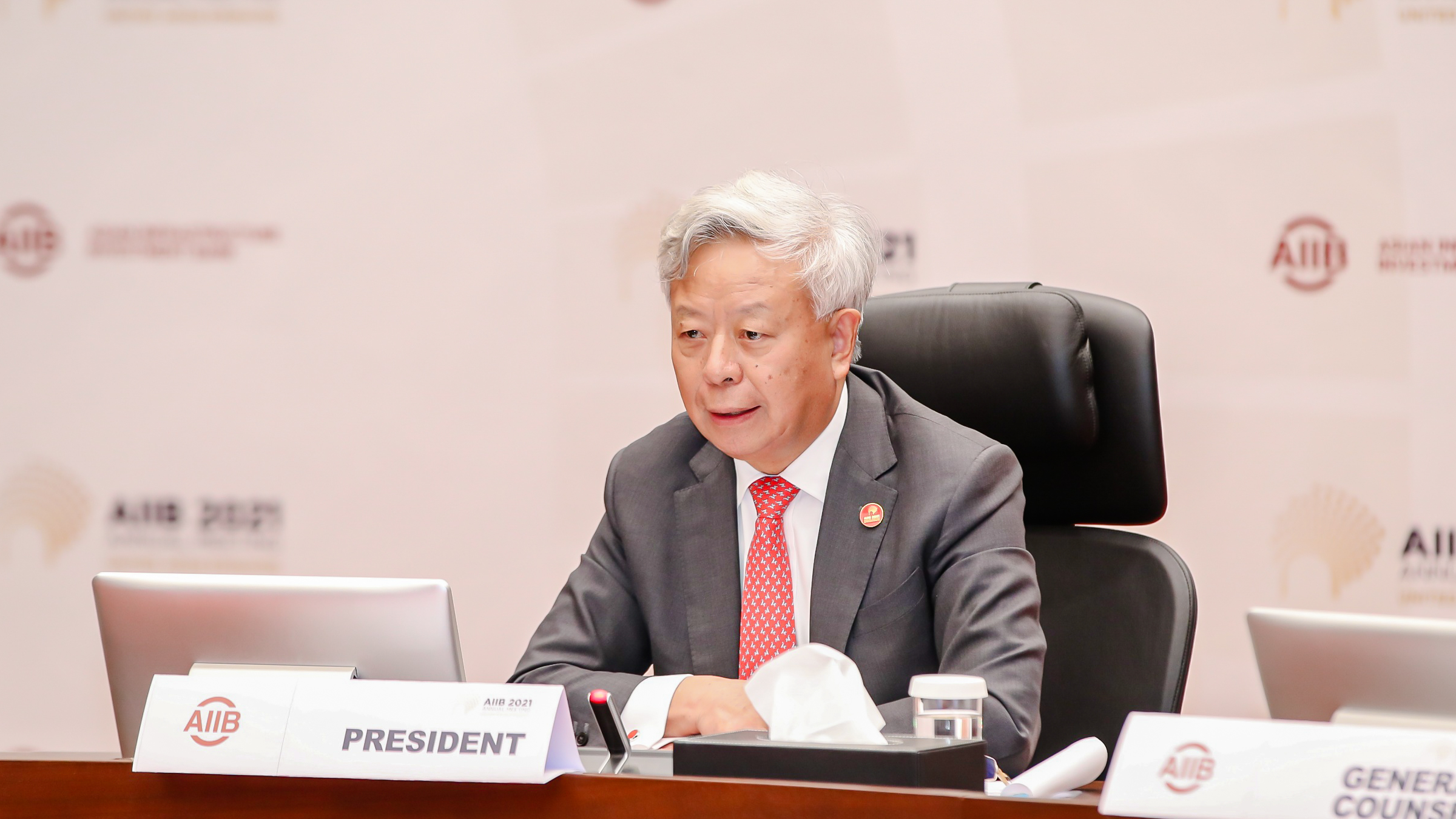
Earlier this year, AIIB announced it would target at least a 50 percent share of climate finance in actual financing approvals by 2025. /AIIB
Earlier this year, AIIB announced it would target at least a 50 percent share of climate finance in actual financing approvals by 2025. /AIIB
The Asian Infrastructure Investment Bank (AIIB) on Tuesday pledged to align its operations with the goals of the Paris Agreement on climate change by July 1, 2023, while also vowing to continue aiding member countries in their efforts to counter the economic impact of COVID-19 pandemic.
The announcements came as the Beijing-headquartered multilateral investment bank kickstarted its sixth annual meeting, a three-day event from October 26 to 28, that is being hosted by the United Arab Emirates virtually this year, under the shadow of the pandemic.
AIIB estimates its cumulative climate finance approvals will hit $50 billion by 2030. This amount would represent a four-fold increase in annual climate finance commitments since AIIB started publicly reporting the number in 2019.
Earlier this year AIIB announced it would target at least a 50 percent share of climate finance in actual financing approvals by 2025. Tuesday's announcement marks a key step towards achieving this goal.
"We are at a defining moment in history – one which calls for bold, fast and wide-ranging collective action if we are to limit global warming and protect our fragile planet," Jin Liqun, president and chair of the Board of Directors at AIIB, said at a press conference on the sidelines of the annual meeting.
"Today's announcement reinforces AIIB's long-standing pledge to support climate action in line with the Paris Agreement. We think the way forward needs greater participation by the private sector on all fronts, so that we can collectively deliver on the promise of building an inclusive, equitable and sustainable future," he added.

Jin Liqun, president and chair of the Board of Directors of the Asian Infrastructure Investment Bank (AIIB), at the bank's annual meeting that is being virtually hosted by the United Arab Emirates. /AIIB
Jin Liqun, president and chair of the Board of Directors of the Asian Infrastructure Investment Bank (AIIB), at the bank's annual meeting that is being virtually hosted by the United Arab Emirates. /AIIB
Jin said enhancing investments in adaptation and resilience for low-income members and fostering emerging technologies to drive action on climate change are key focus areas. The Paris Alignment commitment would apply to sovereign and non-sovereign projects, including investments made via financial intermediaries.
AIIB is currently testing a rigorous process to ensure projects meet low-carbon and climate-resilient standards consistent with the Paris Accord. The approach draws on international standards and frameworks currently being developed in collaboration with other multilateral development banks.
COVID-19 relief to low-income countries
Meanwhile, in a separate interaction with the media in Beijing, D J Pandian, AIIB vice president for Investment Operations, highlighted how the bank rose swiftly to manage the sudden disruption and challenges caused by the COVID-19 pandemic.
"Due to the outbreak, many countries were in urgent need of money to augment their health infrastructure and to expedite their emergency purchases. So, AIIB created a general fund of $13 billion to deal with the crisis response facility. So far, we have approved 42 projects in just under two years of the pandemic amounting to $10.3 billion and another 13 projects are in the pipeline amounting to another $3 billion," Pandian said.
"In addition, after the pandemic some low-income countries are struggling hard to borrow money at the market rate. So, we are setting up a fund to help the low-income countries to buy down the interest rate up to 100 basis points, under special funding provisions," he said adding that AIIB is working on a strategy to provide funds to its member countries for procuring vaccines.

